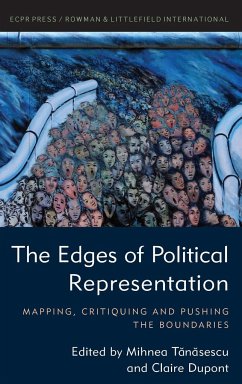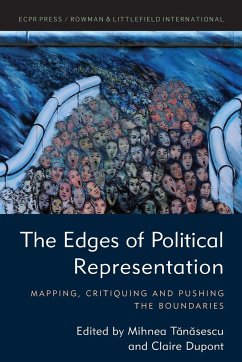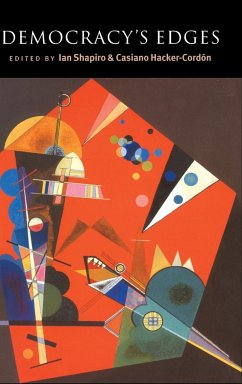
The Edges of Political Representation
Mapping, Critiquing and Pushing the Boundaries
Herausgeber: Tanasescu, Mihnea; Dupont, Claire
Versandkostenfrei!
Versandfertig in 1-2 Wochen
104,99 €
inkl. MwSt.

PAYBACK Punkte
52 °P sammeln!
The concept of political representation has expanded beyond the classical relationship between representative and the represented to encompass advocacy, group identities, non-human voices, future generations, non-democratic systems, symbols, virtual representation and broader interests. As such, literature on political representation stems from a wide range of viewpoints and scholarly traditions, with different norms and assumptions built in. This volume aims to map and critique the 'edges' of political representation. By moving from a discussion in the classical electoral literature through f...
The concept of political representation has expanded beyond the classical relationship between representative and the represented to encompass advocacy, group identities, non-human voices, future generations, non-democratic systems, symbols, virtual representation and broader interests. As such, literature on political representation stems from a wide range of viewpoints and scholarly traditions, with different norms and assumptions built in. This volume aims to map and critique the 'edges' of political representation. By moving from a discussion in the classical electoral literature through feminist perspectives to different levels of representation, different understandings of who is represented and onto empirical studies of symbolic and virtual representation through participation, the contributions in this book provide a nuanced assessment while also presenting future avenues for research that go beyond the mainstream of research on political representation. Taken together, the chapters provide a wide vista of political representation across several sub-disciplines in political science (political theory, political philosophy, party politics, electoral politics, feminism, European politics, minority politics, online governance etc.), and also open up new research avenues through a thorough investigation and critique of political representation in scholarship.












